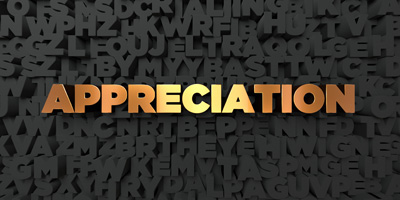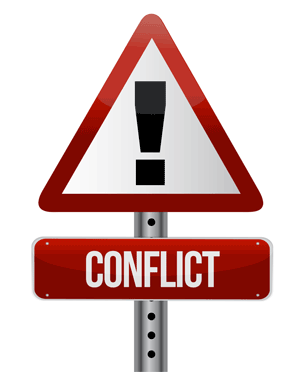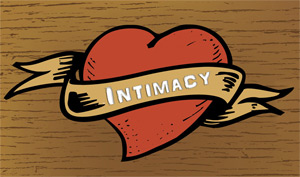 Not being “heard” by a partner is frustrating. No one wants to feel insignificant, invisible, overlooked or taken for granted. The common response when one feels they are not being listened to, is either to fight harder to get their partner’s attention, or retreat or withdraw often leading to depression.
Often a client says they feel they can’t express themselves in the relationship because when they try to talk, their partner becomes defensive meaning they only see and defend their side and their experience, often claiming they are “right”, without even hearing the initial partners complaint.
Therefore, I am sharing with you a fail-proof system of communicating, that eliminates both getting defensive, and eliminates triggering someone else from getting defensive. It is fail-proof when done correctly and I see tremendous changes in couples when we do this in therapy.
Here is information for you to understand and use the process. I would love to hear how it works for you. May you have significant and powerful results. Enjoy!
Not being “heard” by a partner is frustrating. No one wants to feel insignificant, invisible, overlooked or taken for granted. The common response when one feels they are not being listened to, is either to fight harder to get their partner’s attention, or retreat or withdraw often leading to depression.
Often a client says they feel they can’t express themselves in the relationship because when they try to talk, their partner becomes defensive meaning they only see and defend their side and their experience, often claiming they are “right”, without even hearing the initial partners complaint.
Therefore, I am sharing with you a fail-proof system of communicating, that eliminates both getting defensive, and eliminates triggering someone else from getting defensive. It is fail-proof when done correctly and I see tremendous changes in couples when we do this in therapy.
Here is information for you to understand and use the process. I would love to hear how it works for you. May you have significant and powerful results. Enjoy!
Effective communication is essential to a good relationship. Good communication skills may not solve problems or resolve issues, but no problems can be solved, or issues resolved without them. We may communicate well or poorly, but we cannot NOT communicate. One of the most effective forms of communication between persons in a committed love relationship is the INTENTIONAL DIALOGUE. It consists of three processes called mirroring, validation and empathy. Mirroring is the process of accurately reflecting back, the content of a message from one partner. The most common form of mirroring is paraphrasing. A “paraphrase” is a statement in your own words of what the message your partner sent means to you. It indicates that you are willing to transcend your own thoughts and feelings for the moment and attempt to understand your partner from their point of view. Any response made prior to mirroring is often an “interpretation” and may contain a misunderstanding. Mirroring allows your partner to send their message again and permits you to paraphrase until you do understand. Validation is a communication to the sending partner that the information being received and mirrored makes sense. It indicates that you can see the information from your partner’s point of view and can accept that it has validity- It is true for the partner. Validation is a temporary suspension or transcendence of your point of view that allows your partner’s experience to have its own reality. Typical validating phrases are: “I can see that…l”, “It makes sense to me that you would thing that”, “I can understand that …”, Such phrases convey to your partner that their subjective experience is not crazy, that it has it’s own logic, and that it is a valid way of looking at things. To validate your partner’s message does not mean that you agree with his/ her point of view or that it reflects your subjective experience. It merely recognizes the fact that in every situation, no “objective” view is possible. In many communication between two persons, there are always two points of view, and every report of any experience is an “interpretation” which is the “truth” for each person. The process of mirroring and validation affirms the other person and increases trust and closeness. Empathy is the process of reflecting or imagining the feeling the sending partner is experiencing about the event or the situation being reported. This deep level of communication attempts to recognize, reach into and on some level, experience the emotions of the sending partner. Empathy allows both partners to transcend, perhaps for a moment, their separateness and to experience a genuine “meeting.” Such an experience has remarkable healing power. Typical phrases for empathic communication include: “and I can imagine that you must feel…”, and when you experience that, I hear….and that makes sense to me.” A complete dialogue transaction may then sound as follows: “So, I understand you to be saying that if I don’t look at you when you are talking to me, you think that I am interested in what you are saying. I can understand that, it makes sense to me, and I can imagine that you would feel rejected and angry. That must be a terrible feeling.” The reciprocal exchange of this process is the INTENTIONAL DIALOGUE.

 Self-care, it turns out, takes a lot more effort and energy than just getting a mani/pedi, going to a new restaurant or getting a massage. It means truly accepting accountability for your physical, mental, and emotional well-being, and making decisions that support it. Self-care asks us to establish boundaries and practice (at least some) discipline so that we give ourselves the best chance at happiness. It requires us to tune in and get to know our thought patterns, desires, triggers, and fundamental needs so that we can properly anticipate and manage them. Self-care is the very definition of adulting. It puts the ball in our court and empowers us to go get what we need to feel whole instead of expecting anyone else to guess what it is and magically deliver it on a silver platter.
This certainly does not mean we can’t ask for help or that we shouldn’t look for support from people in our lives. It’s only a problem if/when we start believing our own sense of worth, fulfillment, and happiness rests solely on their shoulders. When we expect others to take care of our core needs, we become the victims who need to be rescued and set our relationships up for failure. Solid, healthy, mutually beneficial friendships and marriages are formed when two whole people choose to be together to support and elevate one another… not fix or “complete” each other.
Will Smith does a great job talking about this in this brief
Self-care, it turns out, takes a lot more effort and energy than just getting a mani/pedi, going to a new restaurant or getting a massage. It means truly accepting accountability for your physical, mental, and emotional well-being, and making decisions that support it. Self-care asks us to establish boundaries and practice (at least some) discipline so that we give ourselves the best chance at happiness. It requires us to tune in and get to know our thought patterns, desires, triggers, and fundamental needs so that we can properly anticipate and manage them. Self-care is the very definition of adulting. It puts the ball in our court and empowers us to go get what we need to feel whole instead of expecting anyone else to guess what it is and magically deliver it on a silver platter.
This certainly does not mean we can’t ask for help or that we shouldn’t look for support from people in our lives. It’s only a problem if/when we start believing our own sense of worth, fulfillment, and happiness rests solely on their shoulders. When we expect others to take care of our core needs, we become the victims who need to be rescued and set our relationships up for failure. Solid, healthy, mutually beneficial friendships and marriages are formed when two whole people choose to be together to support and elevate one another… not fix or “complete” each other.
Will Smith does a great job talking about this in this brief  Thought for the day: “A person who feels appreciated, will always do more than expected”
Thought for the day: “A person who feels appreciated, will always do more than expected” A problem doesn’t mean life is negative or horrible. All people have problems to work through.
To solve the problem, we first have to make sure the problem is ours, and not someone else’s. If it isn’t our problem, we need to set a boundary.
Then we seek the best solution. This may mean setting a goal, asking for help, or gathering more information, taking an action or letting go.
We can face and solve problems, knowing they will appear regularly. Avoiding and procrastinating dealing with a problem makes us more stressed. It often takes more energy to run from a problem rather than to face it. It can be a lot easier when we trust our ability to solve problems and not feel like we are so alone.
Do your best to face today’s unresolved issues and problems and do what you can. Don’t worry needlessly about tomorrow’s problems, because when they appear, we’ll have the resources necessary to solve them. We make the most of living in the present when we face and solve problems as they appear, and not worry needlessly on problems that haven’t happened.
A problem doesn’t mean life is negative or horrible. All people have problems to work through.
To solve the problem, we first have to make sure the problem is ours, and not someone else’s. If it isn’t our problem, we need to set a boundary.
Then we seek the best solution. This may mean setting a goal, asking for help, or gathering more information, taking an action or letting go.
We can face and solve problems, knowing they will appear regularly. Avoiding and procrastinating dealing with a problem makes us more stressed. It often takes more energy to run from a problem rather than to face it. It can be a lot easier when we trust our ability to solve problems and not feel like we are so alone.
Do your best to face today’s unresolved issues and problems and do what you can. Don’t worry needlessly about tomorrow’s problems, because when they appear, we’ll have the resources necessary to solve them. We make the most of living in the present when we face and solve problems as they appear, and not worry needlessly on problems that haven’t happened. When a couples come to therapy, I often ask: “What is it that keeps you together?”. Answers range from convenience, sex, money, companionship to the most frequent response, “We love each other”. The problem with this response is that love means different things to different people. Sometimes the expectations that one associates with love can add to the relationships conflicts. i.e. “If you loved me you would do this ..…or you would feel this ..…” Then, I may ask, “Do you trust each other?” Interestingly, many people emphatically say “No, we love each other but we don’t trust each other”. Trust and good communication are the two main ingredients necessary for intimacy. Therefore, love without trust is not enough. Without trust we don’t feel safe. Many people have problems with trust. If handling things alone and taking care of yourself was what you had to do as a child, it may feel unfamiliar and scary to be in a close relationship. On the other hand, come people cling to those they love, being overly jealous and unable to tolerate a healthy level of independence.
Intimacy isn’t something you can experience alone. By it’s very nature, it assumes a relationship and a relationship means risk. The other half of any relationship is a person you can’t control. But in a loving relationship, you and your partner can create intimacy with excitement, passion, good communication and trust. Rewards are great when you are willing to work together.
The following is an INTIMACY ASSESSMENT meant to be used as a guide to assess intimacy in your relationship. Think about a partner or a close friend and ask yourself the following:
When a couples come to therapy, I often ask: “What is it that keeps you together?”. Answers range from convenience, sex, money, companionship to the most frequent response, “We love each other”. The problem with this response is that love means different things to different people. Sometimes the expectations that one associates with love can add to the relationships conflicts. i.e. “If you loved me you would do this ..…or you would feel this ..…” Then, I may ask, “Do you trust each other?” Interestingly, many people emphatically say “No, we love each other but we don’t trust each other”. Trust and good communication are the two main ingredients necessary for intimacy. Therefore, love without trust is not enough. Without trust we don’t feel safe. Many people have problems with trust. If handling things alone and taking care of yourself was what you had to do as a child, it may feel unfamiliar and scary to be in a close relationship. On the other hand, come people cling to those they love, being overly jealous and unable to tolerate a healthy level of independence.
Intimacy isn’t something you can experience alone. By it’s very nature, it assumes a relationship and a relationship means risk. The other half of any relationship is a person you can’t control. But in a loving relationship, you and your partner can create intimacy with excitement, passion, good communication and trust. Rewards are great when you are willing to work together.
The following is an INTIMACY ASSESSMENT meant to be used as a guide to assess intimacy in your relationship. Think about a partner or a close friend and ask yourself the following:
 To enjoy the holidays fully, some of us need to give up the blocks and resistance that prevent us from experiencing the magic and possibilities of being fully present and fully able to accept the good that is all around us. Blocks such as anger, resentment and blaming can get in our way. Most people have someone in their life who they feel has treated them wrong. They hurt our feelings, left us in a difficult situation, maybe even betrayed us. Maybe we were treated in a way that we never thought possible, or never thought possible by that particular person. But it happened.
We can never change what happened in the past. Our acceptance of their behavior can put us back in control to make decisions that are best for us. Once we face and accept the truth of what happened, we can stop struggling. We don’t have to let someone else’s poor, neglectful or abusive behavior control our happiness. We can develop healthy boundaries, have healthy friends and avoid toxic people. Let go of people, thoughts and behaviors that don’t serve you.
It’s never OK for someone to hurt someone else. Never. Forgiveness isn’t about saying what happened is OK. Forgiveness is about letting go of the negative hold it has on you.
It’s time to grieve our losses and let go of our blocks to personal freedom. Don’t give your happiness over to someone else.
Once we fully grieve our losses, feel our pain, accept what happened and forgive, we can feel joy and love once again. Let go of blocks that prevent you from living fully and having a good time. It is our responsibility to make our life work and make it work well. Be good to yourself and by being open to the celebrations, joy, warmth and love that you see all around you. Enjoy the holidays! You can choose to make them a great time for you!
To enjoy the holidays fully, some of us need to give up the blocks and resistance that prevent us from experiencing the magic and possibilities of being fully present and fully able to accept the good that is all around us. Blocks such as anger, resentment and blaming can get in our way. Most people have someone in their life who they feel has treated them wrong. They hurt our feelings, left us in a difficult situation, maybe even betrayed us. Maybe we were treated in a way that we never thought possible, or never thought possible by that particular person. But it happened.
We can never change what happened in the past. Our acceptance of their behavior can put us back in control to make decisions that are best for us. Once we face and accept the truth of what happened, we can stop struggling. We don’t have to let someone else’s poor, neglectful or abusive behavior control our happiness. We can develop healthy boundaries, have healthy friends and avoid toxic people. Let go of people, thoughts and behaviors that don’t serve you.
It’s never OK for someone to hurt someone else. Never. Forgiveness isn’t about saying what happened is OK. Forgiveness is about letting go of the negative hold it has on you.
It’s time to grieve our losses and let go of our blocks to personal freedom. Don’t give your happiness over to someone else.
Once we fully grieve our losses, feel our pain, accept what happened and forgive, we can feel joy and love once again. Let go of blocks that prevent you from living fully and having a good time. It is our responsibility to make our life work and make it work well. Be good to yourself and by being open to the celebrations, joy, warmth and love that you see all around you. Enjoy the holidays! You can choose to make them a great time for you! If you received a raise tomorrow, what would you do with the extra money? Most people would celebrate—maybe with a nice dinner out or a great bottle of wine, which you deserve. However, earning more should not always change your current or long-term spending habits. The problem is that our minds have the tendency to think we can (and should) spend it. This can quickly create a loss of context, consistency, and control.
These behavioral tendencies are often seen in clinical disorders, and can affect your financial health. They’re also far more common than many realize.
Outstream Video
Financial wellness is not about having so many dollars in your bank account, but about being someone who behaves in a financially healthy way by spending, saving, and living better. But what about those unhealthy financial behaviors that sneak up on us? How do we face them head on, instead of sweeping them under the rug?
You may be shocked to learn that basic elements of common behaviors often seen in personality disorders can trickle into the lives of even the healthiest of individuals and affect their day-to-day financial behavior. Let’s explore three of the most common behaviors.
A Loss of Perspective
The first behavioral challenge we all face is a loss of perspective.
Remember your first paycheck? While we all savored that initial euphoria of the world being our oyster, that feeling dissipated quickly once you factored in unavoidable expenses such as rent, car payments or student loans. By not falling into that same mental trap today and assuming you have more money than you actually have, you’ll avoid the sticker shock you get when you open up your credit card statement each month.
You don’t need to experience euphoria to feel wealthier than you actually are. But you’re damaging your financial health by not looking at your numbers or balancing how much you’re spending with how much you’re earning.
“When people are manic, they have an inflated self-esteem and view of themselves—their sex appeal, their resources—and they have the inability to process the consequences of their actions, which leads to staggering indiscretions,” says Dr. Igor Galynker, a psychiatrist and the director of the Family Center for Bipolar at Beth Israel Medical Center in New York City.
How can you avoid this? One simple approach is to come up with your “Daily Spend” so you never lose focus. What is your Daily Spend? It’s your take home pay, minus all of your required living expenses divided by 30. When you go out shopping, you’ll have a whole new perspective when you realize that the nice shirt you’re looking at is seven days worth of your Daily Spend.
An Addictive Personality
We’ve all heard it. A lot of us have said it. “I have an addictive personality.” But in most cases, we’re referring to an innocent attachment to something we can’t live without: a daily habit. Our trusted Starbucks latte fix. An after-work glass of wine. Eating out for lunch every day!
While neither of these simple pleasures would classify us as an addict, have you stopped to think about how these daily purchases are affecting your financial health? How much are they costing you in the grand scheme of things? And could you live without them? In many cases of alcohol, drug, or gambling addiction, these behaviors started out just like anyone else—innocent and sparse—but spiralled as the daily fix lost its luster.
“No one knows what causes addictive behaviors, like shopping, alcoholism, drug abuse, and gambling,” says Ruth Engs, a professor from the applied health science department at Indiana University. “Some of the new evidence suggests that some people, maybe 10%-15%, may have a genetic predisposition to an addictive behavior, coupled with an environment in which the particular behavior is triggered, but no one really knows why.”
While you aren’t likely to go broke from frequent trips to Starbucks, if you can’t afford the habit, it could still damage your financial health. Putting yourself in debt can damage your mental health.
A Loss of Control
Are you a “shopaholic?” In its worst form, such behaviors can destroy relationships, and at best, hinder your ability to be financially healthy. To know if you have it, just ask yourself the following:
If you received a raise tomorrow, what would you do with the extra money? Most people would celebrate—maybe with a nice dinner out or a great bottle of wine, which you deserve. However, earning more should not always change your current or long-term spending habits. The problem is that our minds have the tendency to think we can (and should) spend it. This can quickly create a loss of context, consistency, and control.
These behavioral tendencies are often seen in clinical disorders, and can affect your financial health. They’re also far more common than many realize.
Outstream Video
Financial wellness is not about having so many dollars in your bank account, but about being someone who behaves in a financially healthy way by spending, saving, and living better. But what about those unhealthy financial behaviors that sneak up on us? How do we face them head on, instead of sweeping them under the rug?
You may be shocked to learn that basic elements of common behaviors often seen in personality disorders can trickle into the lives of even the healthiest of individuals and affect their day-to-day financial behavior. Let’s explore three of the most common behaviors.
A Loss of Perspective
The first behavioral challenge we all face is a loss of perspective.
Remember your first paycheck? While we all savored that initial euphoria of the world being our oyster, that feeling dissipated quickly once you factored in unavoidable expenses such as rent, car payments or student loans. By not falling into that same mental trap today and assuming you have more money than you actually have, you’ll avoid the sticker shock you get when you open up your credit card statement each month.
You don’t need to experience euphoria to feel wealthier than you actually are. But you’re damaging your financial health by not looking at your numbers or balancing how much you’re spending with how much you’re earning.
“When people are manic, they have an inflated self-esteem and view of themselves—their sex appeal, their resources—and they have the inability to process the consequences of their actions, which leads to staggering indiscretions,” says Dr. Igor Galynker, a psychiatrist and the director of the Family Center for Bipolar at Beth Israel Medical Center in New York City.
How can you avoid this? One simple approach is to come up with your “Daily Spend” so you never lose focus. What is your Daily Spend? It’s your take home pay, minus all of your required living expenses divided by 30. When you go out shopping, you’ll have a whole new perspective when you realize that the nice shirt you’re looking at is seven days worth of your Daily Spend.
An Addictive Personality
We’ve all heard it. A lot of us have said it. “I have an addictive personality.” But in most cases, we’re referring to an innocent attachment to something we can’t live without: a daily habit. Our trusted Starbucks latte fix. An after-work glass of wine. Eating out for lunch every day!
While neither of these simple pleasures would classify us as an addict, have you stopped to think about how these daily purchases are affecting your financial health? How much are they costing you in the grand scheme of things? And could you live without them? In many cases of alcohol, drug, or gambling addiction, these behaviors started out just like anyone else—innocent and sparse—but spiralled as the daily fix lost its luster.
“No one knows what causes addictive behaviors, like shopping, alcoholism, drug abuse, and gambling,” says Ruth Engs, a professor from the applied health science department at Indiana University. “Some of the new evidence suggests that some people, maybe 10%-15%, may have a genetic predisposition to an addictive behavior, coupled with an environment in which the particular behavior is triggered, but no one really knows why.”
While you aren’t likely to go broke from frequent trips to Starbucks, if you can’t afford the habit, it could still damage your financial health. Putting yourself in debt can damage your mental health.
A Loss of Control
Are you a “shopaholic?” In its worst form, such behaviors can destroy relationships, and at best, hinder your ability to be financially healthy. To know if you have it, just ask yourself the following:
 When a couples come to my office for therapy, I usually ask, “What is it that keeps you together?” Answers range from convenience, sex, money, companionship to the most frequent response, “We love each other”. The problem with this response is that love means different things to different people. Sometimes the expectations that one associates with love can add to the relationships conflicts. i.e. “If you loved me you would do this ..…or you would feel this ..…” The second question I ask is, “Do you trust each other?” Interestingly, many people emphatically say “No, we love each other but we don’t trust each other”. Trust and good communication are the two main ingredients necessary for intimacy. Therefore, love without trust is not enough. Without trust we don’t feel safe. Many people have problems with trust. If handling things alone and taking care of yourself was what you had to do as a child, it may feel unfamiliar and scary to be in a close relationship. On the other hand, come people cling to those they love, being overly jealous and unable to tolerate a healthy level of independence.
Intimacy isn’t something you can experience alone. By it’s very nature, it assumes a relationship and a relationship means risk. The other half of any relationship is a person you can’t control. But in a loving relationship, you and your partner can create intimacy with excitement, passion, good communication and trust. Rewards are great when you are willing to work together.
The following is an INTIMACY ASSESSMENT meant to be used as a guide to assess intimacy in your relationship. Think about a partner or a close friend and ask yourself the following:
When a couples come to my office for therapy, I usually ask, “What is it that keeps you together?” Answers range from convenience, sex, money, companionship to the most frequent response, “We love each other”. The problem with this response is that love means different things to different people. Sometimes the expectations that one associates with love can add to the relationships conflicts. i.e. “If you loved me you would do this ..…or you would feel this ..…” The second question I ask is, “Do you trust each other?” Interestingly, many people emphatically say “No, we love each other but we don’t trust each other”. Trust and good communication are the two main ingredients necessary for intimacy. Therefore, love without trust is not enough. Without trust we don’t feel safe. Many people have problems with trust. If handling things alone and taking care of yourself was what you had to do as a child, it may feel unfamiliar and scary to be in a close relationship. On the other hand, come people cling to those they love, being overly jealous and unable to tolerate a healthy level of independence.
Intimacy isn’t something you can experience alone. By it’s very nature, it assumes a relationship and a relationship means risk. The other half of any relationship is a person you can’t control. But in a loving relationship, you and your partner can create intimacy with excitement, passion, good communication and trust. Rewards are great when you are willing to work together.
The following is an INTIMACY ASSESSMENT meant to be used as a guide to assess intimacy in your relationship. Think about a partner or a close friend and ask yourself the following: